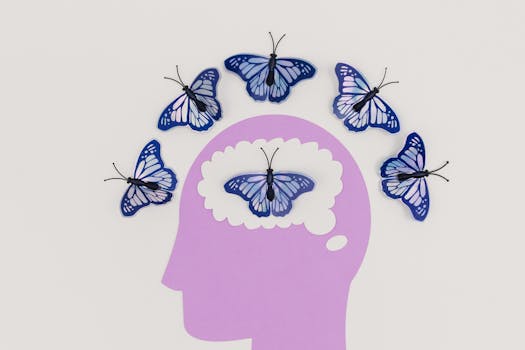What is cognitive dissonance?

What is cognitive dissonance?
Cognitive dissonance is a fascinating psychological phenomenon that many people encounter without even realizing it. At its core, it refers to the uncomfortable feeling we experience when we hold two conflicting beliefs, values, or attitudes simultaneously. Understanding cognitive dissonance is essential not just for personal growth but also for improving productivity and decision-making in our daily lives.
Understanding Cognitive Dissonance
Cognitive dissonance occurs when our beliefs and behaviors clash, leading to feelings of discomfort or tension. For example, imagine you value health and fitness but find yourself indulging in junk food regularly. This inconsistency between your values and actions creates cognitive dissonance, pushing you to either change your behavior, alter your beliefs, or justify your actions in some way.
Leon Festinger, a prominent psychologist, introduced the concept of cognitive dissonance in 1957. His research highlights how humans strive for internal consistency. When our cognitions—thoughts, beliefs, or attitudes—are not aligned, we feel unsettled. To harmonize our beliefs and actions, we often resort to rationalizing our decisions or changing our beliefs altogether. For a deeper dive into Festinger’s work, you can check out this article on Britannica.
The Psychological Basis of Cognitive Dissonance
Festinger’s research laid the groundwork for understanding cognitive dissonance through various experiments. One notable study involved participants who were asked to perform a tedious task and then lie to others about how enjoyable it was. Those who received a small reward for lying reported enjoying the task more than those who received a larger reward. This occurs because the participants who were underpaid felt more dissonance, prompting them to change their beliefs to justify their actions.
This phenomenon illustrates that when our beliefs are challenged, we often shift our perceptions to eliminate discomfort. If you want to learn more about the theory itself, a comprehensive overview can be found here.
Real-Life Examples of Cognitive Dissonance
Cognitive dissonance is prevalent in everyday situations. Here are a few relatable scenarios:
-
Dieting: You commit to a healthy diet but occasionally indulge in cake at a party. To alleviate dissonance, you might tell yourself that it’s okay because it’s a special occasion.
-
Smoking: A smoker may know about the health risks of smoking but rationalizes their habit by highlighting their stress relief or social aspects.
-
Purchasing Decisions: After buying an expensive car, you might emphasize its advantages to justify the high cost, despite initially having doubts about the purchase.
These scenarios can lead to profound insights about our behaviors. You can explore more real-life examples of cognitive dissonance here.
The Effects of Cognitive Dissonance on Behavior
Cognitive dissonance has a significant impact on our behavior and decision-making processes. When faced with dissonance, individuals often resort to rationalization, which can skew their judgment and lead to irrational choices.
Cognitive Dissonance in Decision Making
Have you ever made a decision, only to feel regret afterward? This is a classic case of cognitive dissonance. When we encounter dissonance after making a choice, we may justify our decision by downplaying the negatives or emphasizing the positives. For instance, if you chose a particular phone model but later found it lacking, you might convince yourself that it was the best available option despite its flaws.
This rationalization can lead to a cycle of poor decision-making. If you’re curious about how cognitive dissonance plays a role in decision-making, take a look at this insightful article that discusses the psychological underpinnings of the phenomenon.
Cognitive Dissonance and Mental Health
Unresolved cognitive dissonance can have emotional and psychological impacts. It may manifest as anxiety, guilt, or discomfort, affecting mental well-being. Those who frequently experience cognitive dissonance might find themselves in a state of stress or confusion, leading to a decline in overall happiness.
It’s crucial to address cognitive dissonance to maintain mental health. You can read more about its effects on mental health here.
How to Manage Cognitive Dissonance
Managing cognitive dissonance is essential for personal development and well-being. Awareness is the first step toward dealing with dissonance effectively.
Techniques to Reduce Cognitive Dissonance
-
Reframe Your Thoughts: Try to see the situation from a different perspective. This can help reduce the tension between conflicting beliefs.
-
Seek Consistent Information: Surround yourself with information that aligns with your beliefs. This can reinforce existing attitudes and reduce dissonance.
-
Improve Self-Awareness: Reflect on your thoughts and actions. Understanding why you feel dissonance can empower you to make conscious changes.
For additional techniques to manage cognitive dissonance, check out this comprehensive guide here.
Benefits of Resolving Cognitive Dissonance
Addressing cognitive dissonance can lead to better decision-making, increased productivity, and a more fulfilling life. When you align your actions with your beliefs, you enhance your well-being and cultivate a sense of harmony in your life. The clarity that comes from resolving dissonance can empower you to make decisions that lead to personal growth.
Embracing Cognitive Dissonance for Personal Growth
Understanding cognitive dissonance is crucial for anyone looking to enhance their personal development and productivity. By recognizing and addressing the discomfort that arises from conflicting beliefs and actions, you can take meaningful steps toward self-improvement. Embrace cognitive dissonance as an opportunity for growth, and let it guide you to a more authentic life.
Through awareness and practical techniques, you can navigate the complexities of your thoughts and behaviors, leading to a more harmonious and productive existence. Remember, the journey of overcoming cognitive dissonance is not just about alleviating discomfort—it’s about embracing the lessons it offers for a richer, more fulfilling life.